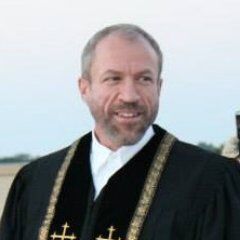I’ve had this little movie playing in my head this past week, that scene in the bible where Jesus walks across the Sea of Galilee, and Peter recklessly stepping out of the boat to walk to him. We all remember the story from Sunday School, I’m sure. After a long day of ministry, Jesus sends his disciples across the lake in a boat while he remains alone to pray. Late at night, seeing them caught in a storm, he walks out on the water to meet them. They’re all terrified at first, but then Peter wants to try water-walking too. (Matthew 14:22-33)
This scene fascinates me because it is saturated with spiritual truth, and so poignantly illustrates our often-times tenuous walk of faith. It’s a great visual reminder for me when I’ve lost my excitement about life and my optimism over where my life is headed. At a quick glance, the story suggests three points, three requirements, for walking in the realm of the extraordinary.
The first thing that strikes me is Peter’s audacity. The other disciples are still trembling in the boat, still recovering from their terror at the sight of what they think to be a ghost approaching them. And I’m sure they’re completely exhausted from their long day and straining at the oars in those rough waters. Peter alone overcomes his initial panic and exhaustion, and has the chutzpah to demand to do the miraculous, to be allowed to walk on the water also. “Lord, if it’s you, command me to come to you on the water.”
Many of us with our religious upbringing might cringe at such presumption: demand anything of Jesus? Wouldn’t we expect a rebuke for our lack of humility: “Hey, you are not me, just because I do this doesn’t mean you should”? Or, “settle down, just be quiet, stop trying to show off”? It is significant I think, and says much about the heart of Jesus, that he not only does not rebuke Peter, he actually encourages him. This is the first requirement. If we want the extraordinary in our lives, we have to have a shameless desire for it.
And Jesus calls Peter out: “Come.” This is the second requirement: getting God’s go-ahead, making sure we have the divine commission. Peter didn’t just jump out onto the water on his own, although that certainly would be consistent with his personality. He asked for Jesus to command him. At least he knew enough by then to wait until being given permission, and with that permission came the authority and ability. This is what separates presumption from confidence, and is the key to our success versus our humiliating failure. The divine command, the certainty that God wants it for us also.
Although we know that Peter does climb out of the boat, something we often overlook is the courage – even recklessness – it took to obey. And that’s requirement number three. Peter follows through. He climbs out of the boat and takes that first shaky step, putting his foot on churning water as though it were solid. And amazingly, it is! That took a lot of guts. And I’m sure the other disciples were just as surprised to see him succeed.
Unfortunately, most of us never get to that point in our own journeys. We seldom experience that exhilaration and sheer amazement at doing something utterly unimaginable. Many of us will be like the other disciples, too tired, too worn out, or too intimidated by our circumstances to even dream of doing anything other than remaining in the safety of the boat. But Lord, give us the character of Peter! Give us the wild, unrealistic audacity to want to do impossible things.
Great achievement for the Kingdom requires bold dreams, the confidence of God’s will, and reckless obedience. And for me, this is the powerful message of this passage.
If you want to walk on water, you must first get out of the boat. And before that can happen, you have to have the chutzpah to ask.

Self-described “Gen-X reader, theological over-thinker and wannabe mystic” Stephen Schmidt is a graduate of the seminary at Oral Roberts University in Tulsa, holds two masters degrees in Biblical Literature and Divinity, and did doctoral research at the Hebrew University of Jerusalem and at the Jewish Theological Seminary of America in New York. He is currently working on his doctorate of ministry in Christian Spirituality at the Virginia Theological Seminary and is pastor of The Abbey Church in Norman, Okla., and editor of https://impactmagazine.us.
